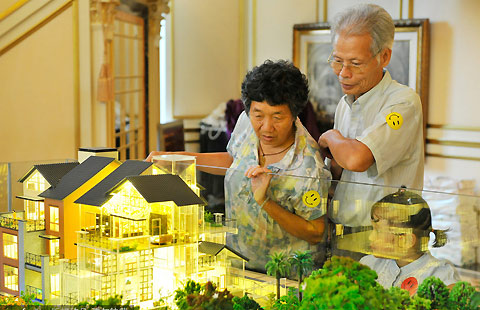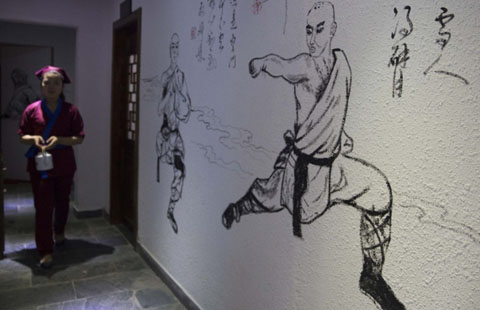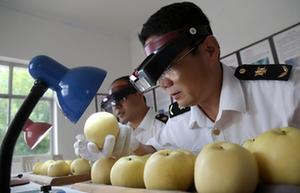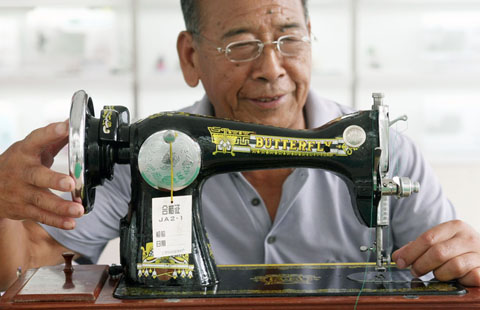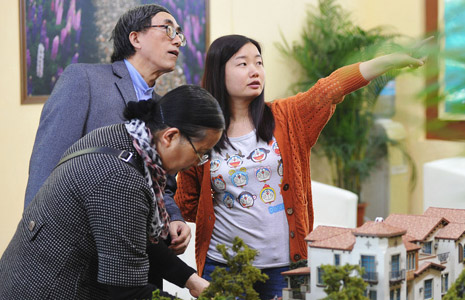China initiates orderly migration of 100m farmers into cities
(Xinhua) Updated: 2014-08-08 16:10BEIJING - China's sweeping hukou reform will grant 100 million migrant workers equal access to urban social welfare by 2020, but many have started to wonder where the 100 million strong rural population will settle down.
Will they flock to already over-crowded mega cities like Beijing and Shanghai, where increasing population will further strain urban resources? Or will they become residents of China's smaller cities, which would be better able to accommodate them but provide fewer job opportunities?
|
 |
| New urbanization plan ambitious: Analysts |
To ensure orderly migration of the 100 million migrant workers, the guideline asks local governments to set differentiated household registration policies based on their ability to absorb migrants and provide public services.
Under the guideline, migrants can settle in towns and small cites with populations under 500,000 freely, with previous hukou restrictions abolished. For medium-sized cities with populations between 500,000 and one millon, however, controls have been set in hopes of establishing an orderly resettlement of rural population.
More conditions apply for big cities of with populations between 3 million and 5 million, and movement into mega cities with more than 5 million people will be strictly controlled.
Primary conditions include legally being employed at a stable job for a certain period and owning or renting a residence in the city they wish to move to.
China's hukou system is tied to one's place of residence and was set up in 1958 to control movement of rural population into cities. The hukou system has prevented the country's 269 million migrant from receiving the same public benefits as city dwellers and is widely believed to hold back urbanization and domestic consumption.
The new guideline says China will implement a single household registration, scrapping the nominal distinction between rural and urban hukous, but the benefits tied to hukous of different areas still exist with more developed areas providing better public services.
The differentiated hukou relocation policies are based on three socioeconomic factors, Huang Ming, vice minister of the Public Security Ministry, told Xinhua.
- China's export beats forecast, surplus at new high
- China launches anti-dumping probe for methyl methacrylate
- Audi faces colossal fines for monopoly
- 1st-tier cities unlikely to lift house market bans
- Cathay Pacific invests in sustainable biojet fuel developer
- China regrets WTO ruling on rare earth
- Government says Apple never on procurement list
- Solar installations rise to 23 GW after additions in H1



